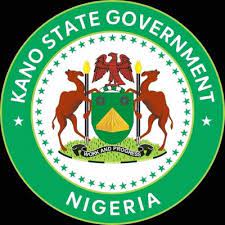Agriculture
Ex- INEC Commissioner Urges FG To Increase Investments In Infrastructure, Agriculture
Ganiyu Obaaro, Lagos
The Federal Government of Nigeria has been charged to prioritise it’s budgetary spending by placing greater premium on the provisions of infrastructure, such as education, roads and health to enhance meaningful development across the country.
Speaking as the guest lecturer at the Nigerian Union of Journalists, Lagos Traffic Radio Chapel, Ikeja, Lagos State on recently, a University lecturer and Professor of Sociology, University of Lagos, Yaba, Professor Lai Olurode described as unsustainable, the huge funds spent on the nation’s legislators, including Senators and Members of the House of Representatives.
He said President Muhammadu Buhari should use his second term in office to right past wrongs and address security challenges, unemployment and deplorable state of infrastructure in the country.
The theme of the programme, which also marked the chapel’s inaugural media week and awards to distinguished personalities, including business mogul, Sir (Dr) Adebutu Kessington; Group Managing Director, Odua Investments Limited; Mr Adewale Raji; General Manager, Corporate Affairs, Federal Airport Authority of Nigeria, Mrs Henrietta Yakubu and Secretary, Transportation, Federal Capital Territory, Abuja, Kayode Opeifa, was: “Democracy and Sustainable Development: Reinventing Media Agenda for Good Governance.”
According to Olurode, who spoke on the topic, entitled: “Democracy and Sustainable Development,” “the rate of poverty and unemployment, especially of able-bodied youths in the country, was worrisome”, warning however that it did not augur for the development of the nation.
He said even though democracy has come to stay in the country, the process of democratisation is an ongoing thing and must be allowed to mature.
Olurode, who was a former commissioner in the Professor Attahiru Jega -led National Electoral Commission (INEC) between 2011- 2015, said democracy was better than military rule.
He described the media as critical to democracy, rule of law and development, adding that although the industry was muzzled under the military, the sector has done well in sustaining the current democratisation process, in spite of it’s diverse ownership, structure and challenges.
He urged the media to continue to help nurture democracy, be sensitive to public yearnings and remain resolute in the discharge of its Constitutional duties as the Fourh Estate of the realm.
He criticised the last general elections under the chairmanship of Professor Mamud Yakubu, saying, “It was characterised by violence; while several cases of election petitions are currently in various courts.”
Also speaking at the event, the Group Managing Director of Odua Investments Limited, Mr. Afebsyo Raji called for transparency and accountability in governance.
He said this is one area of bringing democracy dividends to the people and ensuring national development.
Raji also harped on training as critical to development, pointing out that himself capital development was critical to taking greater heights, reducing dearth of quality personnel in all spheres of the nation’s enterprises. Meanwhile, the General Manager of the radio station, Mr. Tayo Akanle commended the chapel for being steadfast in its activities, while the chairman of the chapel, Mr Akin Kola Akinlade spoke of the the essence of the programme as enlightening journalists on their societal responsibilities and, especially, the need to help sustain democracy in Nigeria
Agriculture
Tiv Monarchs Give Herders Ten Days Ultimatum To Vacate Tiv Kingdom

By David Torough, Abuja
The Tiv Area Traditional Council during its emergency meeting held yesterday in the palace of the Tor Tiv in Gboko requested the Governor Hyacinth Alia led administration to create an enabling environment to allow herders’ peaceful exit of farmlands in Tiv Kingdom to facilitate resumption of farming activities.
Consequently, the Council directs political and traditional rulers in each local government area of Tiv Kingdom to peacefully engage the herders to ensure their exit from the local government areas to allow farming resumes.
The Council which was chaired by the Tor Tiv himself, HRM Prof James Ortese Iorzua Ayatse CFR equally appealed to all herders in Tiv Kingdom in Benue State to vacate all Tiv lands before the end of May 2025 to allow farmers return and cultivate their farms in order to avoid the looming hunger in Nigeria.
According to a Communique signed by the Secretary of the Council Mr Shinyi Tyozua which deliberated particularly on the security situation in Tiv Kingdom the Council enumerated the communities worst affected to include those in Kwande, Katsina Ala, Logo, Ukum, Guma, Makurdi, Gwer West Gwer East and Buruku Local Government Areas.
The Council lamented that farming activities in the kingdom have ceased due to the occupation of farmlands by herders for grazing and attacks and killings of farmers who fled stressing that if the situation continues it will ultimately result to hunger in Tiv Kingdom and Nigeria as a whole.
Agriculture
Ondo Govt. Destroys 200kg Seized Cocoa Adulterants

The Ondo State Government, on Thursday, destroyed 200kg adulterants used for adulteration of cocoa beans, seized from a merchant in Ondo West Local Government Area of the state.
Mr Segun Odusanya, Permanent Secretary in the Ministry of Agriculture and Forestry (Forestry and produce sub section), supervised the destruction of the 200kg bags of seized adulterants.
Odusanya explained that the destruction was part of government efforts to ensure that the state maintained quality cocoa production in the country.
“Mr governor, Lucky Aiyedatiwa, has reiterated the commitment to ensure the state remains the highest producing state with good cocoa quality
“Anyone caught engaging in illegal activities will be prosecuted accordingly.
“Moreover, this action was embarked on to warn cocoa merchants, who intend to engage in illegal activities, to rethink before getting into it.
“We are going to seal any store caught in such illegal activities, the products will be burnt while the merchant will be prosecuted according to the laws of the land.
“If we are saying we are the highest cocoa producing state and we continue to encounter this scenario, it will give us a bad publicity.
“The bad publicity will be in the country and extend to the international market, and we don’t want that,” he said.
The permanent secretary, therefore, commended Aiyedatiwa for graciously approving the recruitment of 60 new staff to checkmate the activities of cocoa merchants in the state.
“Mr governor has supported us, he has said we should recruit more people to guide against any adulteration and ensure we have a good quality cocoa beans.
“I must commended our task force committee for ensuring that the state holds its position in the country and the international market,” he said.
Earlier, Mr Tunji Akinnadeju, a Director of Produce (DP3) in the Grading and Allied Department of the ministry, said the adulterants were intercepted at Ondo West Local Government Area of the state.
Akinnadeju said that the owner of the adulterants took to his heels at the time of arrest.
“As we all know that cocoa is being sold in weight and after adding all these things, it will be sold at high prices, which is not good enough.
“So, doing that will bring a lot of damage to the image of the state and the country at large in the international market,” he said.
Also, Mr Sunday Adegbola, a Director of Produce Licensing in the ministry, said the merchants’ actions could affect people during consumption of the cocoa products, if care was not taken.
Adegbola, who pledged that the ministry would not rest until the state was free from adulterated cocoa beans, said the nefarious action could be attributed to the price tag at the international market.
“It is the price at the international market and the price is better for the farmers, not for the people who use adulterants.
“With this action, many people will drink cocoa as a chocolate powder and other materials from cocoa beans which has been adulterated.
“The consumption of these chemical products will also affect humans,” he said. (NAN)
Agriculture
NNPC Foundation Empowers Vulnerable Farmers in Oyo, Osun

No fewer than 500 farmers on Tuesday benefited from the NNPC Foundation agricultural training initiative for vulnerable farmers in Osun and Oyo States.
The training, marking the flag-off in the South-West zone of Nigeria, was held at the Ilora Baptist Grammar School, Ilora, Oyo State.
The foundation manages the Corporate Social Responsibility (CSR) initiatives of NNPC Limited, focusing on education, health, environment and energy access to communities nationwide.
The Managing Director of the foundation, Mrs Emmanuella Arukwe, said the initiative demonstrated the commitment to food security and economic empowerment for Nigerian farmers.
Arukwe, who was represented by Dr Bala David, the foundation’s Executive Director, Programme Development, said the project aimed to build resilience, boost productivity and promote sustainable agriculture.
“We are training 6,000 farmers across six zones in climate-smart practices, modern techniques, quality inputs, and market access,” she said.
She, therefore, urged farmers to participate actively and embrace the opportunity to help secure Nigeria’s food and economic future.
Mr Olasunkanmi Olaleye, Oyo State Commissioner for Agriculture and Rural Development, commended NNPC Foundation for the training and empowerment programme.
Olaleye, who was represented by Mr Olusegun Ezekiel, the ministry’s Director of Regulation and Enforcement, said empowering vulnerable farmers was crucial in addressing national food security challenges.
He added that the initiative aligned with Oyo State’s agricultural transformation agenda of Gov. Seyi Makinde.
“We remain committed to supporting initiatives that uplift farmers and improve productivity and livelihoods,” Olaleye said.
He encouraged participants to make the most of the training opportunity to improve their practices.
He also called for future collaboration between the foundation and the ministry to achieve greater impact.
The training consultant, Prof. Daniel Ozok, described vulnerable farmers as smallholders with an under-five-hectare farm size, mainly made up of women, youth, and the elderly.
“These farmers are most affected by climate shocks, hence the need for focused training,” Ozok said.
According to him, training equips them with modern techniques and strategies for improved productivity and market access.
Some of the participants expressed gratitude to NNPC Foundation and promised to apply the knowledge gained from the training.
NAN reports that a medical screening exercise was organised by the foundation for participants on the sidelines of the training.
Training initiative would later be held for farmers in Ekiti and Ondo States on a date different from that of Ogun and Lagos States. (NAN)

























